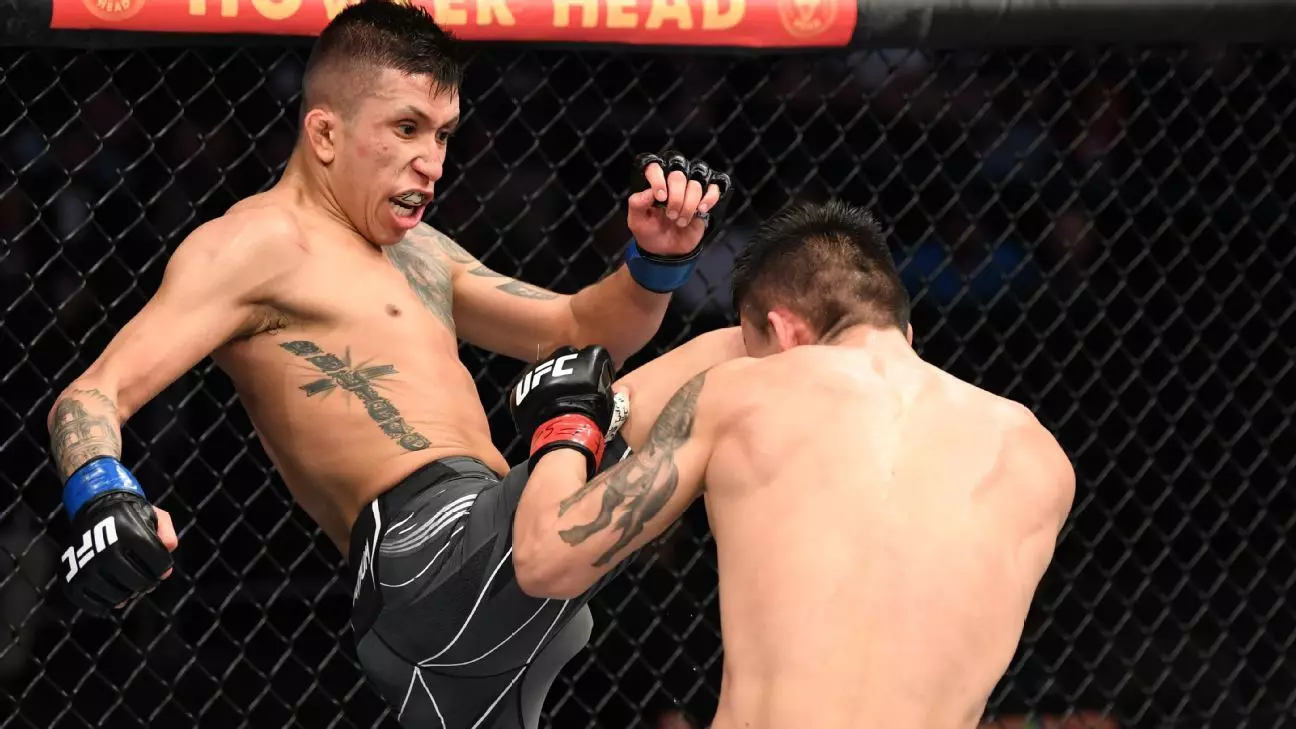Mixed Martial Arts (MMA) has surged in popularity over the last decade, drawing millions of fans worldwide and transforming athletes into household names. But with its growing fame emerges an equally troubling underbelly: the realm of gambling. The excitement of placing bets on fights can enhance the fan experience, but when fighters themselves become involved in insider betting, it raises ethical questions and concerns about the sport’s integrity. A recent incident involving UFC fighter Jeff Molina has brought this issue to the forefront, revealing how tempting and perilous the convergence of sports and betting can be, especially when inside information is involved.
The Molina Incident: Betraying Trust
Jeff Molina’s case illustrates the risks that come with a competitive edge gained through dubious means. According to reports from the Nevada Athletic Commission (NAC), Molina used non-public knowledge regarding an injury sustained by fellow fighter Darrick Minner, allowing him to place significant bets on the outcome of the November 6, 2022, fight against Shayilan Nuerdanbieke. This revelation has sent shockwaves through the MMA world, not only because it threatens the integrity of the competition but because it shatters the trust that fans and fellow fighters place in the sport’s governing bodies.
The fact that Molina, then an active member of the UFC, acted on privileged information to secure a financial win shows a blatant disregard for the ethical parameters that athletes are expected to uphold. Exploiting an injury that is unknown to the public goes beyond the bounds of sportsmanship and raises questions about the regulatory measures in place to govern athletes’ conduct, both in the octagon and in the world of betting.
Consequences and Accountability
Molina’s behavior led to immediate repercussions. The NAC suspended him in January 2023 and during a subsequent hearing, he admitted to his transgression, agreeing to a three-year suspension that is due to end this November. The fact that he chose not to attend the hearing speaks volumes about his willingness to confront the fallout of his actions. Although he submitted a letter explaining his perspective, the absence reveals a pattern of evading responsibility that should concern both fans and regulatory bodies.
Darrick Minner, another key figure in this debacle, also faced scrutiny for failing to disclose his own leg injury prior to the fight and received a suspension from the NAC. The entire episode has prompted a reevaluation of the regulatory frameworks that monitor fighter behavior, especially concerning their interactions with betting entities. The NAC, tasked with upholding the sport’s integrity, appears to have gaps in its oversight that allowed such behavior to go unregulated for so long.
The Impact on the MMA Community
Molina and trainer James Krause’s suspensions underline an unsettling trend within the MMA landscape: a precedent for impropriety that could tarnish the sport’s reputation. When coaches and fighters are enmeshed in betting operations, the entire competitive framework becomes suspect. This issue extends beyond Molina and Minner; it poses existential questions for the UFC as well, an organization that has worked hard to cultivate its brand in a legitimate, professional light.
Additionally, the public perception of MMA can shift as these incidents become known. Fans may lose trust in the authenticity of competitions when they learn that fighters can manipulate outcomes through insider knowledge. The integrity of sports is built on fair competition, and when that trust erodes, the ramifications can be severe, affecting viewership, sponsorships, and the overall interest in the sport.
A Call for Stricter Regulations
It is increasingly clear that more stringent regulations are necessary to ensure that this kind of misconduct does not become commonplace in MMA. These measures should encompass not only athlete conduct but also the intricacies of betting practices within the sport. Transparency in fighter injuries, oversight of coaching practices, and strict penalties for violations could work together to restore some level of faith in the system. Until a robust framework is established, MMA will continue walking a precarious line between sport and scandal, risking its hard-earned legitimacy in the eyes of observers worldwide.
As we look toward the future of MMA, the intersections of sports, gambling, and ethics will need vigilant attention. Fighters like Molina may get suspended temporarily, but the lasting effects of such misconduct can ripple through the sport for years to come.


Leave a Reply